Top tips for raising quadruplets
- Published
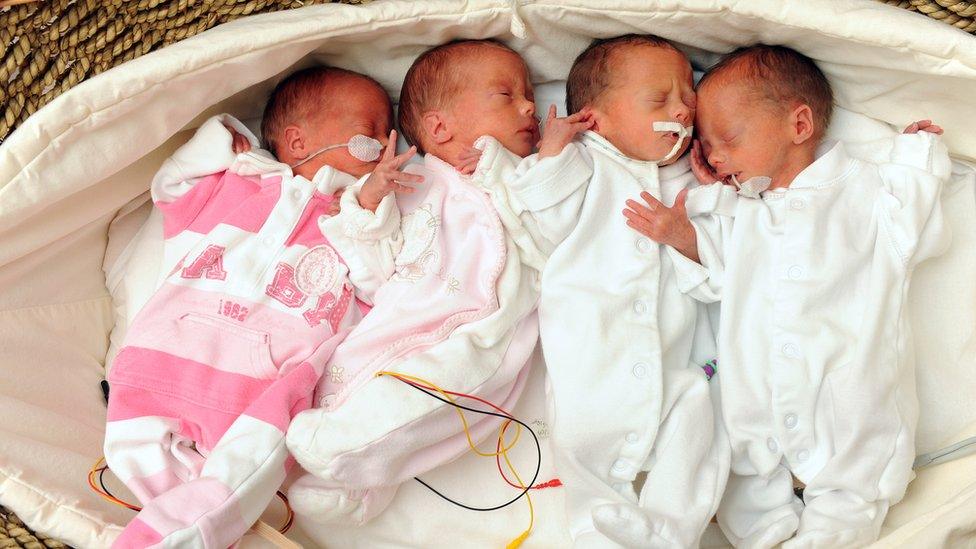
The Kelly family has been through three washing machines since the girls were born
A set of quadruplets born 10 weeks premature in Birmingham are home from hospital for Christmas. Lisa Kelly, who gave birth to four girls in 2009 following IVF, offers the family some tips.

Feed the babies together
Lisa Kelly, from Billingham on Teesside in north-east England, became pregnant with quadruplets after her third round of IVF. She had experienced a "heavy bleed" when seven weeks pregnant and went to hospital expecting to be told she had miscarried her baby. Instead doctors found four heartbeats.
Heidi, Annabelle, Jessica and Hannah were born prematurely at 31 weeks. Lisa said many people advised her and husband Sean to feed each baby separately after they came home but they soon found this exhausting.
"We had to cope through the night with no-one else around and would feed two babies each at the same time. My husband is very hands-on fortunately."
She said they would feed the babies together as soon as one of the girls woke up.
"Those were the easiest days. Premature babies sleep for hours and we were literally bored. They slept for about 20 hours a day while we were all prepared for action."
The couple had experience of the baby stage because they have a son who is now 15.

'Many hands can make it harder'
The couple's two sets of identical twins, dubbed "the 10 million-to-one quads" because of the odds against their birth, attracted a lot of visitors.
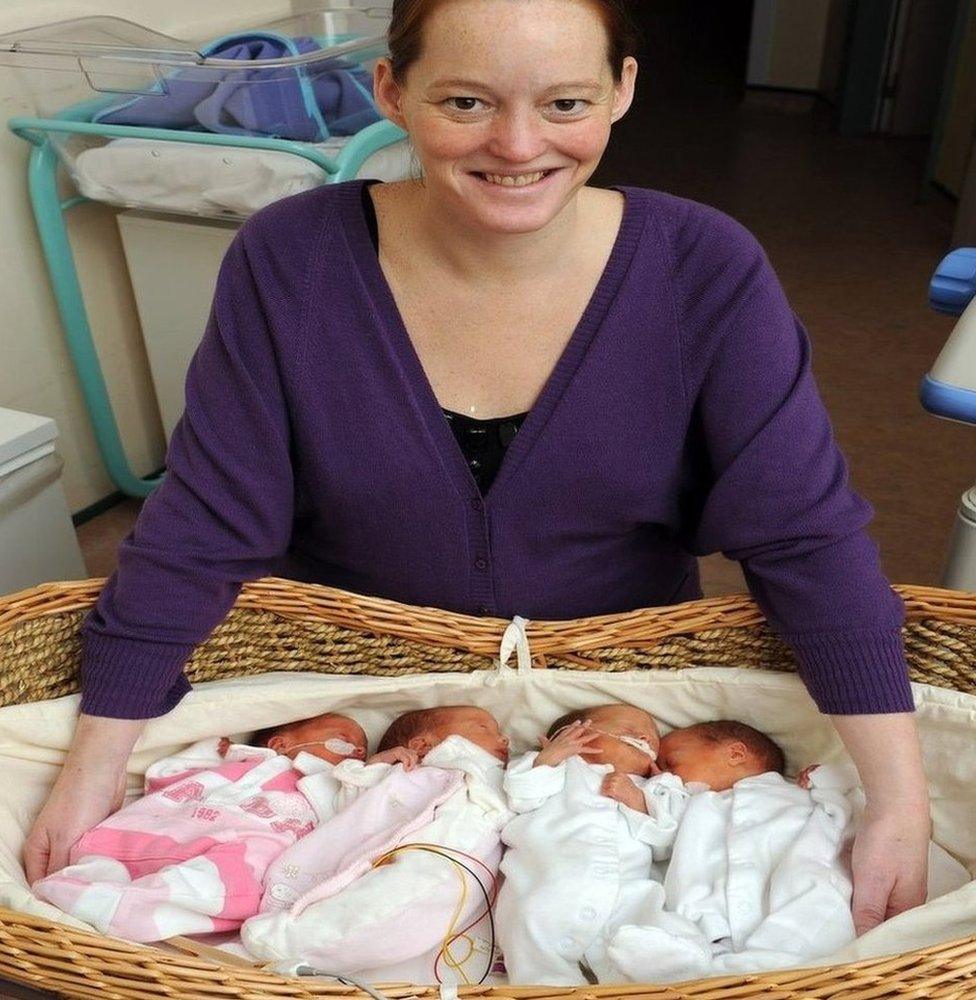
Lisa Kelly said she worried too much about giving the girls enough individual attention
Lisa said while appreciating some help, it also meant the couple often had a "house full of people" and were "running around" trying to look after everybody.
Lisa said they had developed a working routine of feeding and care which could be easily disrupted.
Keith Reed, head of the Twins and Multiple Births Association (Tamba), said parents of quadruplets could instead ask family and friends for "help with housework and meals" and could also get support from a multiples club in their area.
"It's good to have a network of friends who understand the additional needs of multiples," he said.

Enjoy them, you will cope
Looking back, Lisa, a part-time nurse, said she worried too much about financial strains and giving the girls enough individual attention.
"I worried about not being able to give them the things my son had had but they don't expect things. They don't go into a shop and ask for things because I just couldn't get each one a magazine. That would be about £15."
Mr Reed said the cost of things such as cots, nappy cream and blankets were multiplied by four and quadruplets used some 18,000 nappies from birth to potty training.
Lisa said the girls were "independent" with their own personalities and loved being together.
"If one of them is not well, they want to cuddle each other rather than us," she said. Identical twins Jessica and Hannah were "inseparable" while the other twins had more differences.
Tamba, which offers support services, advises parents to make time to "cuddle and get to know" each baby individually.
"Even everyday tasks such as nappy changing are opportunities for bonding with each baby," it said.

Buy a four-baby pushchair
Lisa said she found the "loss of independence" difficult, especially when her husband Sean, an engineer, was at work and she was home with the babies.
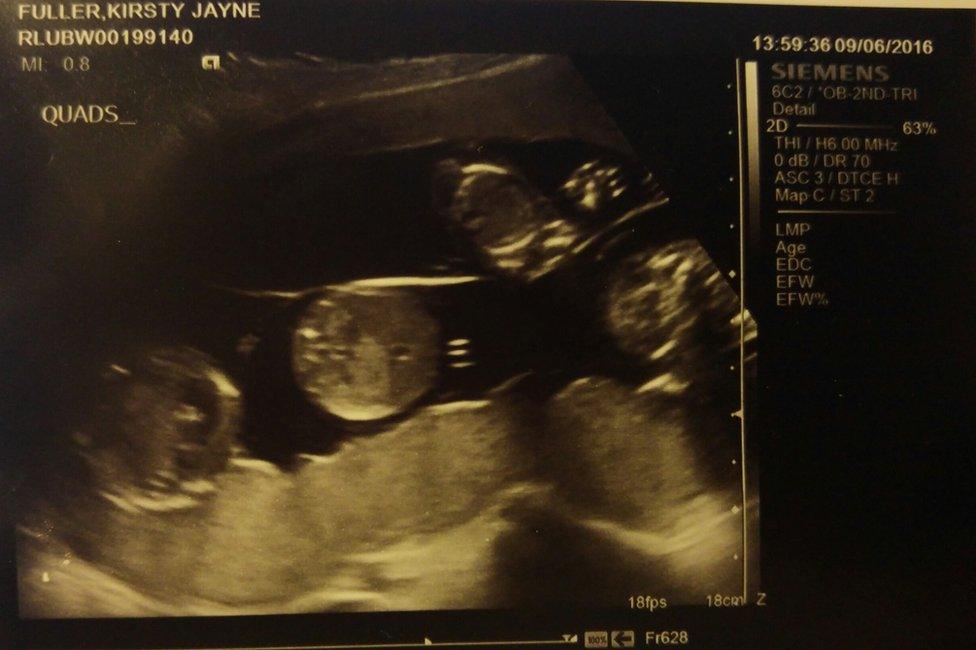
Parents find out they are having quadruplets during routine scans
"I was really struggling, but I got a four-baby buggy and sometimes just sat in the park and it felt a lot more normal. I would 100% recommend this, especially for anyone looking after them alone," she said.
The couple worried about not being able to do things in the future but have been surprised by how much they have achieved.
"We got rid of the buggy early and the girls walked everywhere," she said. "We never thought we would be able to travel but have just all been backpacking around Thailand for four weeks."

Stick together
Lisa said having multiple babies was a "massive strain" on relationships and inevitably led to arguments.
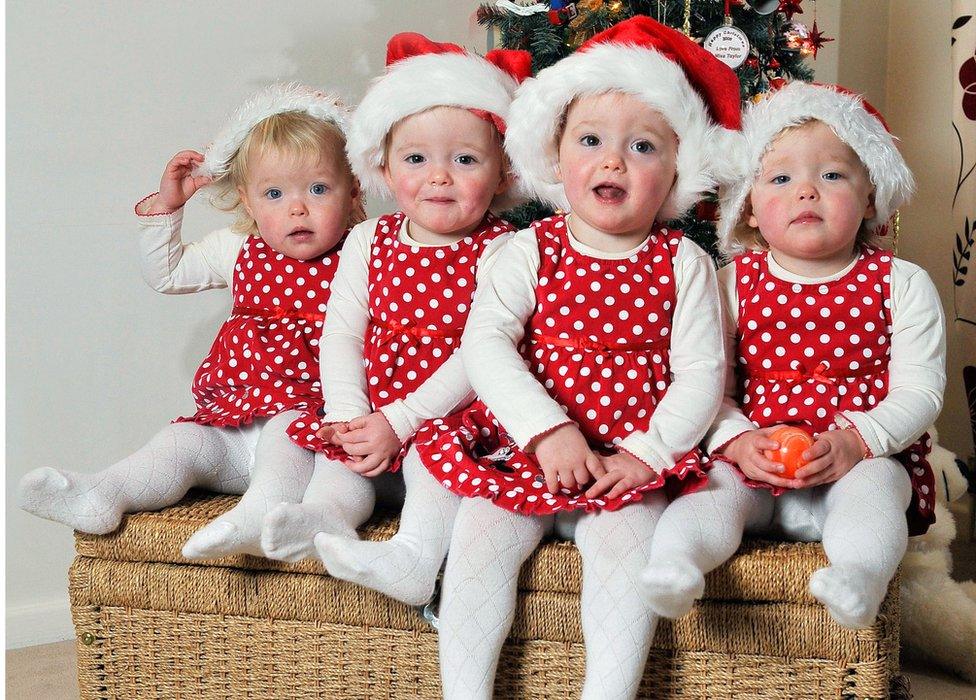
The girls have developed strong bonds
"But you realise when the... hits the fan it is down to you and you have to stick together," she said. "If anything it makes for a better relationship."

Be prepared for attention
Babies often attract attention. So when this is multiplied by four, the situation can be overwhelming for parents.
Lisa said: "This was one thing that I didn't cope very well with. People thought they could just come up and take photos of the kids. I had so many issues with this."
Lisa said people would also make negative comments about having quadruplets. "They would say things like 'I couldn't think of anything worse'."
She added: "For me it is fantastic and amazing and I wouldn't have it any other way."
The quadruplets, who turn seven this month, are now enjoying school.
- Published20 December 2016
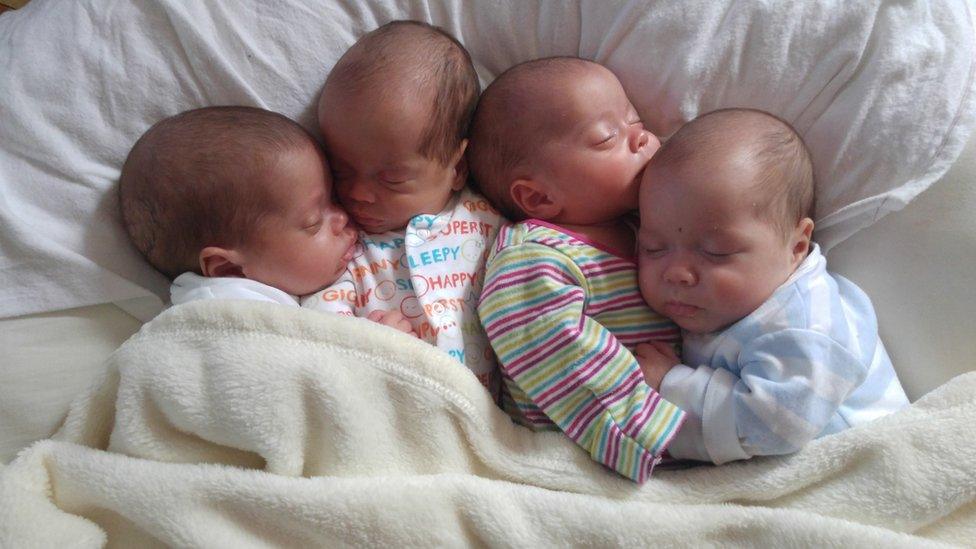
- Published21 August 2012
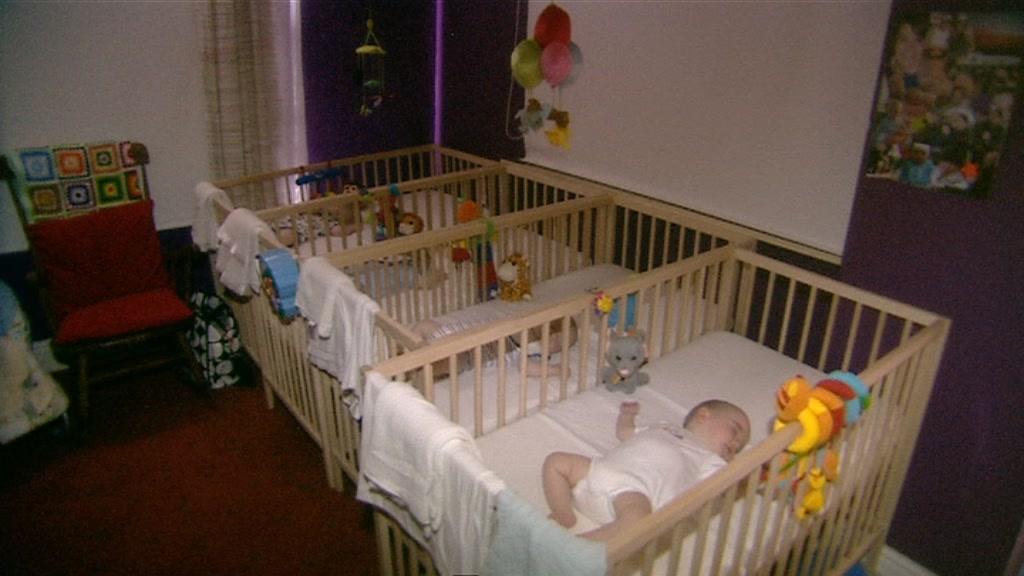
- Published2 March 2012